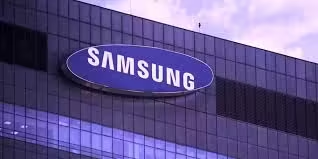Samsung Electronics projected strong demand for AI-driven chips in the latter half of the year, reporting a remarkable 15-fold increase in its second-quarter operating profit. This surge in profitability was fueled by rising semiconductor prices, driven by the AI boom, which has significantly boosted the earnings of the world’s largest memory chip, smartphone, and TV manufacturer.
Samsung’s operating profit soared to 10.4 trillion won ($7.52 billion) for the April-June period, a dramatic increase from 670 billion won a year earlier. This marks Samsung’s highest operating profit since Q3 2022, with the chip division emerging as a key driver of this growth after a previous slump due to reduced post-pandemic demand.
The chip division reported a profit of 6.45 trillion won, the highest since Q2 2022 and marking its second consecutive profitable quarter. This performance is attributed to booming demand for high-end DRAM chips, including high bandwidth memory (HBM) chips used in AI applications, as well as chips for data center servers and AI-enabled gadgets.
Samsung’s HBM revenue for Q2 increased by approximately 50% compared to the previous quarter. Despite not yet meeting Nvidia’s standards for the fifth-generation HBM3E chips, Samsung expects these to make up 60% of its HBM sales by Q4 2024, contingent on final approval by the third quarter.
The company is focusing its production on HBM, server DRAMs, and server SSDs for AI applications, leading to a constrained supply of conventional PC and mobile memory chips in the latter half of the year. The mobile devices segment experienced a decline in operating profit, down about 810 billion won from the previous year, due to higher parts costs, although shipments remained steady at 54 million smartphones.
Looking ahead, Samsung anticipates a rise in overall smartphone demand in the second half of 2024, driven by increased interest in premium AI-enabled devices and accessories like smartwatches. The company recently launched new AI-enabled foldable phones and accessories, including a new health-monitoring ring, to strengthen its position in the premium smartphone market against competitors like Apple.



